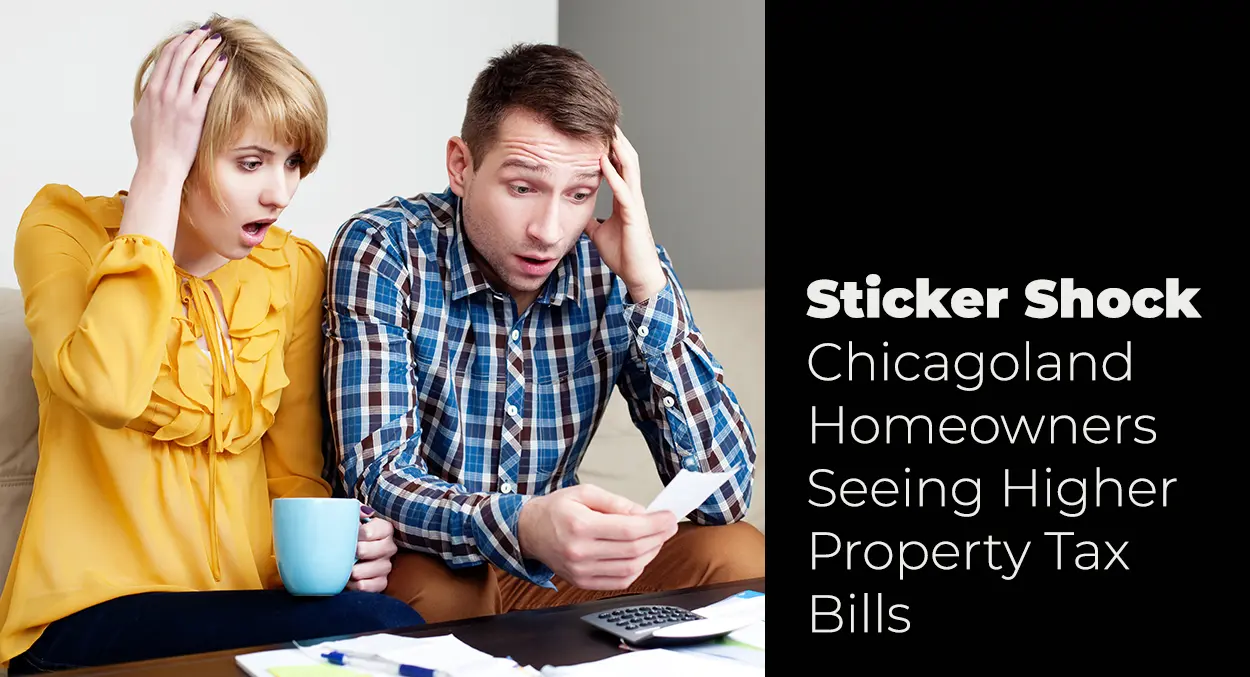- Property Tax Appeals
- Illinois
If you own a home in Chicago, especially on the South and West side neighborhoods of Cook County, you’re not alone in opening your mail and discovering a property tax bill that’s far higher than expected.
According to a recent report released by the Cook County Treasurer’s Office, the median residential tax bill increased by about 17% this year. This is the largest increase in at least 30 years.
The report also notes that median residential tax bill hikes in certain South and West side communities across the city are far more extreme. For example:
- In West Garfield Park, the median homeowner tax bill rose 133% ($2000) in one year.
- In North Lawndale, the median homeowner saw 99% increase ($1900) in the same period.
- In Englewood, the increase was 82% ($609) on average.
You can find the full report here: https://www.cookcountytreasurer.com/.
Below is a breakdown of some of the factors driving the residential property tax increases and homeowner options to appeal their property tax bills.
What’s Driving These Record Property Tax Increases?
Cook County Treasurer Maria Pappas has noted that there are several factors driving these steep increases.
The report notes that commercial tax bills from the Loop dropped by about $129 million in this cycle. Because property tax is a shared burden, the burden shifts heavier onto residential parcels when commercial properties in the downtown Loop area are assessed lower or appeal and pay less.
Additionally, some Chicagoland neighborhoods were recently reassessed and home values have been climbing back up in value. Accordingly, assessments are catching up. Homeowners unprepared for such large property tax increases may face serious financial stress, especially if they were budgeting under older assessment assumptions.
If your home’s value has increased significantly, expect future property tax bills to remain elevated. Commercial property value declines may persist due to low office occupancy, retail struggles, and reduced demand for downtown space. These factors can cause the burden shift to residential properties to continue.
How Can You Review, Reduce, and Appeal Your Illinois Property Taxes?
For many Illinois homeowners, an increase to their property tax bill could represent hundreds or thousands of extra dollars. If you are a residential property owner in Chicago and Cook County, here are some practical steps to consider:
- Review your bill carefully: Compare your previous year’s bill with the new one. Note the percentage increase and check whether your assessed value changed. Also look for the breakdown of taxing bodies (ex. schools, municipality, TIF districts, etc.).
- Check for any exemption or relief programs: Some homeowners may qualify for specific exemptions including senior citizens, disabled homeowners, veterans, etc.
- Understand appeal and relief options: If you believe the assessed value is too high, you have the right to appeal. In Cook County, appeals go through the Assessor’s office and then the Board of Review.
Appealing Your Illinois Property Taxes
For many Chicago homeowners, this year’s property-tax bill has come as a surprise. Declining downtown commercial property values downtown and the reassessment of residential properties have combined to some of the steepest assessment increases in decades.
Appealing your property taxes is one way to ensure you’re not overpaying, especially during a reassessment year. Whether you live in the City of Chicago or surrounding suburbs, a successful property tax appeal can significantly reduce your financial burden.
KSN can handle your property tax appeal from start to finish and there’s no fee unless we secure a reduction. Since 2015, we’ve helped Illinois property owners save over $150 million in property taxes.
Questions about appealing for Illinois property taxes? Contact us today at 847-537-0500 or visit www.ksnlaw.com/tax-appeal
Reach property tax appeal attorney Timothy Jacobs directly at 847-777-7270 or tjacobs@ksnlaw.com
Since 1983, KSN has been a legal resource for condominium, homeowner, and townhome associations. Additionally, we represent clients in real estate transactions, collections, landlord/tenant issues, and property tax appeals. We represent thousands of clients and community associations throughout the US with offices in several states including Florida, Illinois, Indiana, and Wisconsin.
Please note the material contained in this article is for educational and informational purposes only and does not constitute legal advice. No attorney-client relationship is established by your review or receipt of the information contained in this article. You should not act on the information discussed in this article without first obtaining legal advice from an attorney duly licensed to practice law in your State. While KSN has made every effort to include up-to-date information in this article, the law can change quickly. Accordingly, please understand that information discussed in this article may not yet reflect the most recent legal developments. Material is not guaranteed to be correct, complete, or up to date. KSN reserves the right to revise or update the information and statements of law discussed in the article law at any time, without notice, and disclaims any liability for your use of information or statements of law discussed on the article, or the accessibility of the article generally. This article may be considered advertising in some jurisdictions under applicable law/s and/or ethical rules/regulations. © 2025 Kovitz Shifrin Nesbit, A Professional Corporation.


